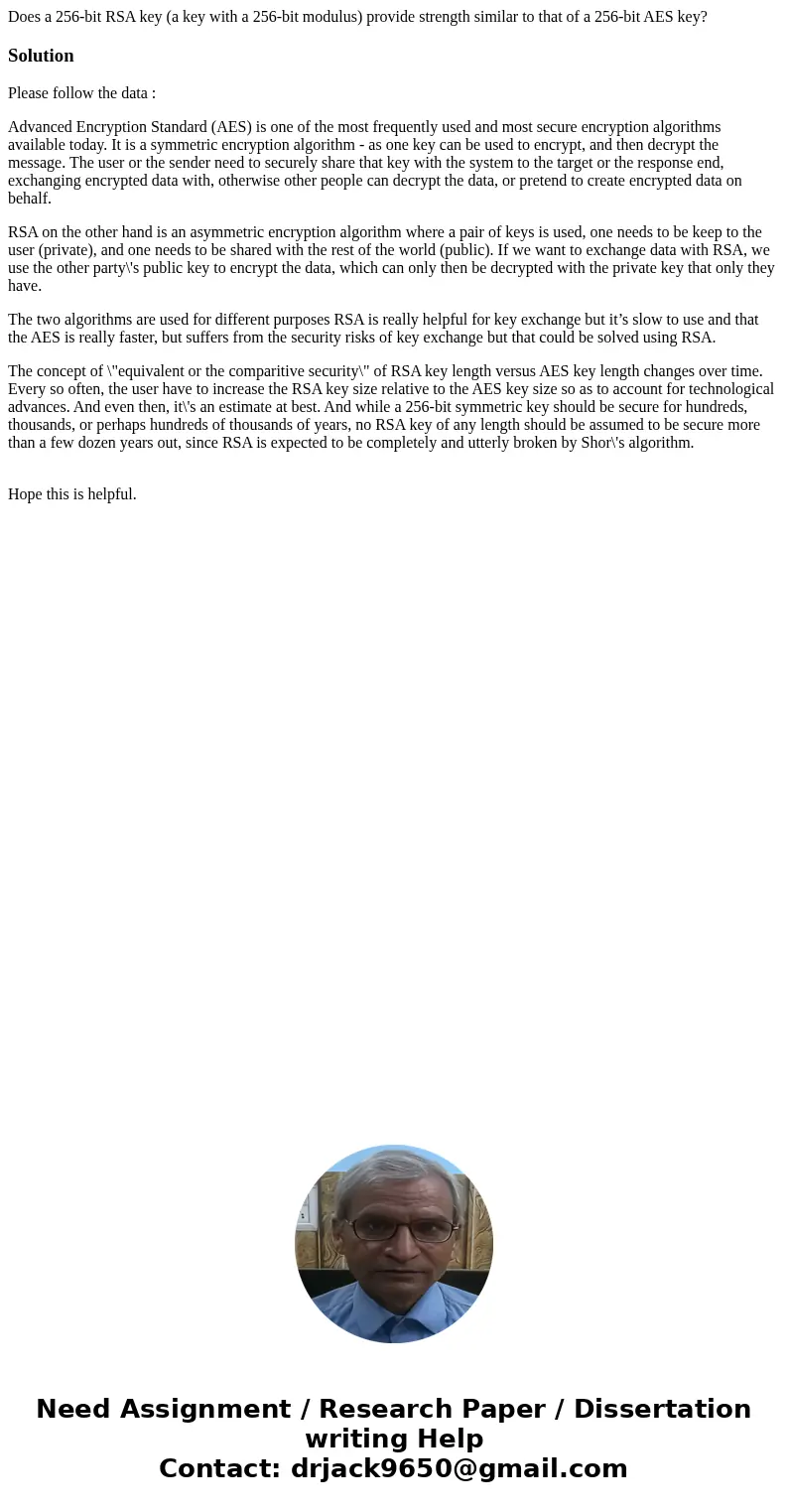Does a 256bit RSA key a key with a 256bit modulus provide st
Does a 256-bit RSA key (a key with a 256-bit modulus) provide strength similar to that of a 256-bit AES key?
Solution
Please follow the data :
Advanced Encryption Standard (AES) is one of the most frequently used and most secure encryption algorithms available today. It is a symmetric encryption algorithm - as one key can be used to encrypt, and then decrypt the message. The user or the sender need to securely share that key with the system to the target or the response end, exchanging encrypted data with, otherwise other people can decrypt the data, or pretend to create encrypted data on behalf.
RSA on the other hand is an asymmetric encryption algorithm where a pair of keys is used, one needs to be keep to the user (private), and one needs to be shared with the rest of the world (public). If we want to exchange data with RSA, we use the other party\'s public key to encrypt the data, which can only then be decrypted with the private key that only they have.
The two algorithms are used for different purposes RSA is really helpful for key exchange but it’s slow to use and that the AES is really faster, but suffers from the security risks of key exchange but that could be solved using RSA.
The concept of \"equivalent or the comparitive security\" of RSA key length versus AES key length changes over time. Every so often, the user have to increase the RSA key size relative to the AES key size so as to account for technological advances. And even then, it\'s an estimate at best. And while a 256-bit symmetric key should be secure for hundreds, thousands, or perhaps hundreds of thousands of years, no RSA key of any length should be assumed to be secure more than a few dozen years out, since RSA is expected to be completely and utterly broken by Shor\'s algorithm.
Hope this is helpful.

 Homework Sourse
Homework Sourse